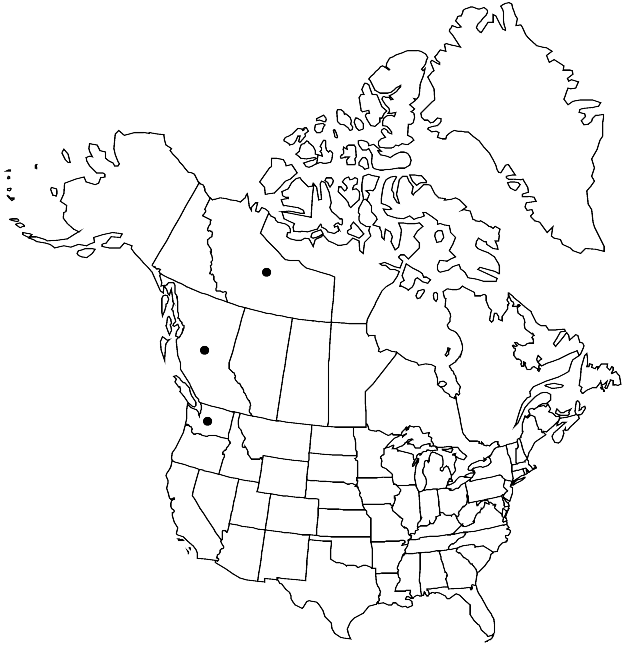Difference between revisions of "Pohlia erecta"
Bot. Not. 1882: 195. 1882.
FNA>Volume Importer |
FNA>Volume Importer |
||
| Line 50: | Line 50: | ||
|publication year=1882 | |publication year=1882 | ||
|special status= | |special status= | ||
| − | |source xml=https://jpend@bitbucket.org/aafc-mbb/fna-data-curation.git/src/ | + | |source xml=https://jpend@bitbucket.org/aafc-mbb/fna-data-curation.git/src/f6b125a955440c0872999024f038d74684f65921/coarse_grained_fna_xml/V28/V28_320.xml |
|genus=Pohlia | |genus=Pohlia | ||
|species=Pohlia erecta | |species=Pohlia erecta | ||
Revision as of 19:45, 24 September 2019
Plants small, green, sometimes red tinged, glossy. Stems 0.4–0.8 cm. Leaves erect to ± spreading, lanceolate to broadly lanceolate, 0.7–1.2 mm; margins serrulate to serrate in distal 1/3; costa subpercurrent; distal medial laminal cells rhomboidal, 35–60 µm, walls thin. Specialized asexual reproduction absent. Sexual condition dioicous; perigonial leaves broadly short-ovate; perichaetial leaves weakly differentiated, elongate-lanceolate. Seta orange-brown. Capsule inclined 0–20°, brown to stramineous, narrowly pyriform, neck 1/3 urn length; exothecial cells short-rectangular, walls sinuate; stomata superficial; annulus present; operculum bluntly to acutely conic; exostome teeth yellow to light brown, narrowly triangular; endostome hyaline, basal membrane scarcely exceeding capsule rim, segments slightly tapered, weakly keeled, ± perforate, cilia absent. Spores 15–21 µm, finely roughened.
Phenology: Capsules mature summer (Jun–Aug).
Habitat: Soil in mesic alpine and subalpine zones
Elevation: high elevations
Distribution

B.C., N.W.T., Wash., Europe.
Discussion
Pohlia erecta is a very rare species with soft, sometimes reddish leaves and thin-walled laminal cells. The erect sporophyte has a highly reduced peristome with short, blunt, often irregular exostome teeth, low endostomial basal membrane, and poorly developed to rudimentary segments.
Selected References
None.